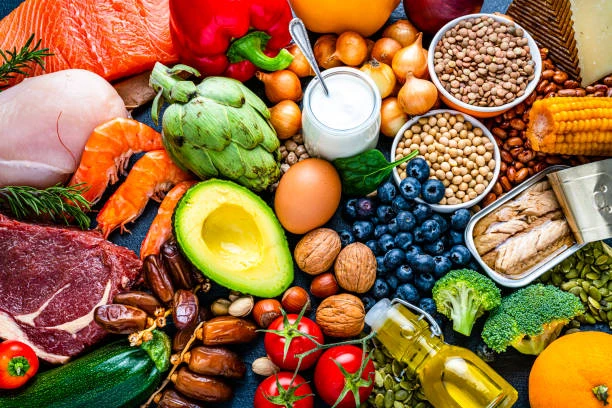 Gbemisola Oluwabusayo
1 month ago
Gbemisola Oluwabusayo
1 month ago
Overview
Africa, Nigeria on the throes of food sufficiency
Not too long ago, the president of Sierra Leone paid a visit to Oyo state. In the company of Gov Seyi Makinde and other governors from the north, they took a tour of agri-processing areas in Oyo where it was canvassed that Africa should be able to feed herself without relying on imported foods. BAYO AGBOOLA reports.
If not for any other purpose or reason, the just- concluded high-level passion at the International Institute of Tropical Agriculture (IITA) headquarters, Ibadan, at least, was a positive pointer to the fact that Africa as a continent is, among other things, capable of producing enough food not only to feed her citizens, but to a larger extent, the entire world, if the leaders across the continent can get their bearings right on time.
The Sierra Leonean president, Dr Julius Maada Bio, Governor Seyi Makinde of Oyo state as well as other speakers at the discussion in their presentations were of the views that if African leaders could be so determined and put in place the much-needed commitment and sincerity, nothing can stop the African continent from attaining that feat in the nearest possible times and become world leading producers of food.
Africa can be food self sufficient – Bio
Going by the words of President Bio, without any doubt, the time has come for African leaders to rise
up and meet the challenges ahead of the continent in becoming producers of adequate food not only for the continent but enough for exportation to countries outside the continent and the entire world unlike what is on ground as at present.
According to President Bio, Africa would not be spending over 50 billion dollars annually to import food if its leaders could leverage their political will, technology and requisite funding to ensure food security on the continent. He therefore lauded the efforts of the Oyo state governor and his colleagues for their various initiatives to drive the economy of their respective states through agribusiness. He used the opportunity to charge them into providing more solutions to agricultural challenges in their various states.
Makinde corroborates
On his part, Gov Makinde said African countries have the capacity to ensure food sufficiency in the world, apart from meeting their local needs, stressing, “I have heard about data where they said Africa is about 1.4 billion people and so also is India and China. So, we should look inwards in terms of food production and food security, but the efforts that we need to take on the whole world is not more than what we need for import substitution”.
According to Gov Makinde, “The real catch is that we must not only be satisfied with meeting our local needs, we have the capacity to also take on the world in terms of solving the global food sufficiency challenge.”
He added his administration’s experiences on the successful and impactful agribusiness initiatives implemented in the state, saying his administration focused on agribusiness knowing that it would be a major driver of the state’s economy, even as it also helps to achieve the vision of taking people from poverty to prosperity and ultimately tackling hunger.
Makinde stressed that his administration had been deliberate about driving agriculture with technology, innovations and data, saying that the tractorisation policy has helped farmers with 50 percent subsidy on ploughing, verification of farmers and input. It also supported small holders, a move he said was among the deliberate efforts taken to ensure food security and sufficiency in the state.
The governor said, “When we came in, we took agribusiness as one of the major pillars to expand our economy. We had a workshop and took all the stakeholders to the Republic of Benin because we didn’t want any distraction.
“We put our roadmap together and started tracking it. Few things came up at that workshop which we believed would work for us.
“When we started, we saw those things that worked and vice-versa; that was when we started tackling hunger to break the cycle of poverty among our people in the state. What has also worked for us is utilising technology to verify the actual data. We went to Israel and saw that they could feed themselves while also exporting, but the entire state of Israel does not have more than 10,000 farmers to do all the fanciful things they are doing all over the world.
Source Blueprint



